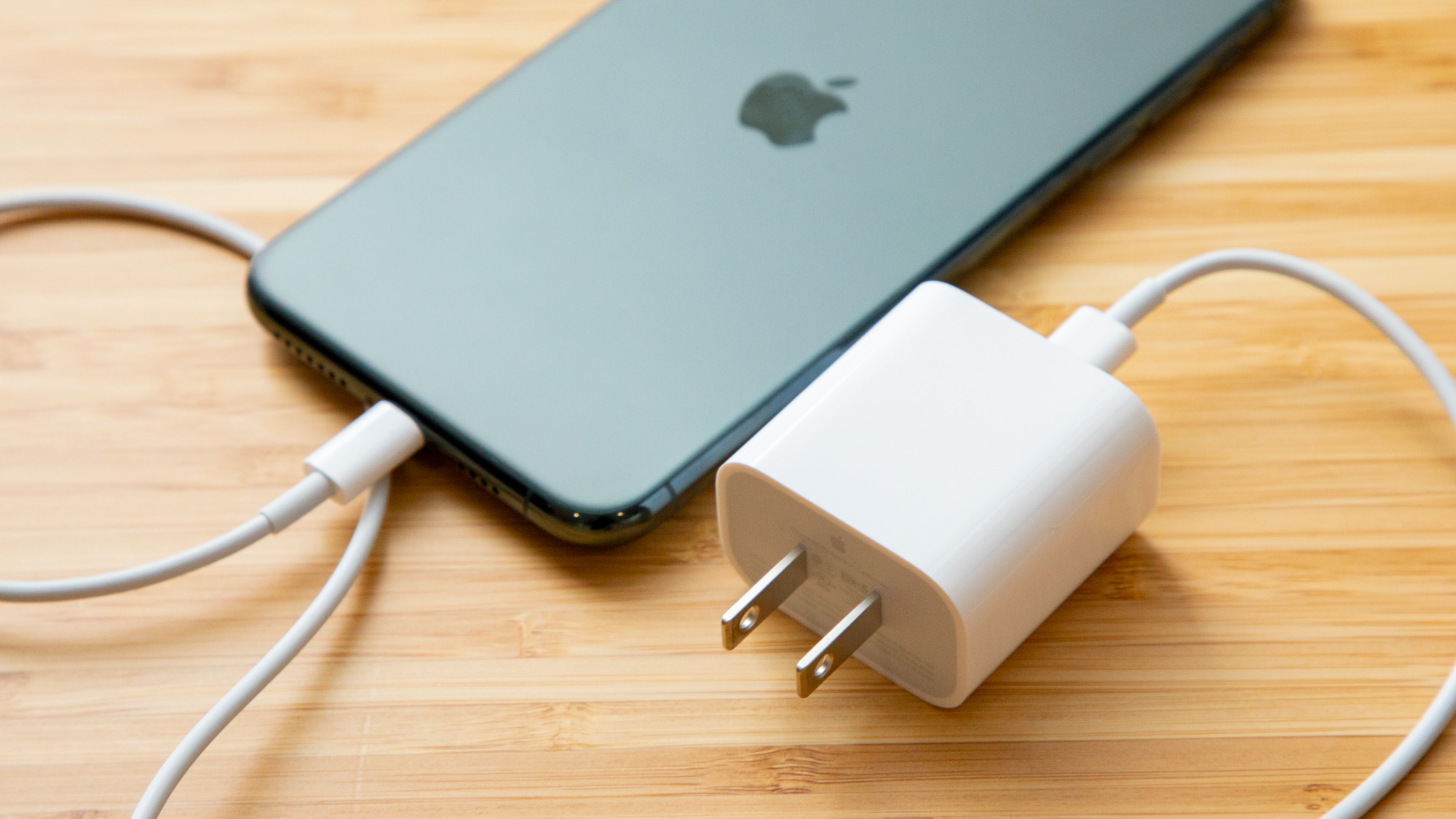An iPhone with USB-C might finally happen, thanks to the EU
European Parliament has made its ruling

Sign up for breaking news, reviews, opinion, top tech deals, and more.
You are now subscribed
Your newsletter sign-up was successful
In the next few years, you may find your future iPhone uses the same charging cable as most Android phones after a ruling today from the European Parliament. The European Parliament has passed a resolution calling for, in its own words, 'the mandatory introduction of common chargers for all mobile devices'.
This means the body wants all smartphones in the future to use the same type of connectivity tech. Instead of iPhones using Lightning, and new budget phones sticking with the older micro-USB, all devices may be forced to switch to the industry standard USB-C.
Lightning is Apple's proprietary tech, so it wouldn't be possible for all Android phones to start using that instead of USB-C.
- These are the best iPhones
- Check out our iPhone 11 Pro Max review
- The iPhone 12 likely won't be affected
The EP (European Parliament) has called on the European Commission to increase the rules and legislation compelling companies to follow this future one-charger rule.
This follows similar rulings in 2009 when the European Parliament requested Apple to use the then-standard micro-USB. Apple found a loophole around that ruling by providing micro-USB to Lightning converters with its phones instead.
Apple, and a variety of budget phone manufacturers who also don't use USB-C, have until July 2020 to comply, before the European Parliament will look to pass legislation obliging them to.
The point of this ruling is to reduce electronic waste, a cause of which can be people needing to buy different chargers for different devices. As well as passing the common chargers rule, the Parliament has called for improved cable recycling facilities and improved compatibility with wireless chargers.
Sign up for breaking news, reviews, opinion, top tech deals, and more.
What comes next for Apple?
This ruling is unlikely to impact near future Apple phones like the iPhone SE 2 or iPhone 12. There probably isn't enough time for the European Parliament or Commission to pass the legislation and enforce it before those new phones come out in 2020.
In the future, though, it's looking more and more likely future iPhones will use USB-C. Saying that, seeing as how MacBooks and the iPad Pro devices already use this standard, it's possible that Apple was heading in that direction anyway.
So what happens for the iPhone 13 and beyond? Well, it's possible Apple could create two different products, one with Lightning Ports for most of the world and another USB-C product just for European markets.
That's unlikely to happen considering the company would have to design and manufacture two different types of phones just to be able to keep Lightning connectors in certain markets.
The logical choice would be for the future iPhones to have USB-C, and then follow industry trends for whatever follows after that.
Another option is if wireless charging becomes popular enough Apple could introduce a device without any ports at all, which relies on wireless transmission of power and data. The tech exists for this already, and we've seen it in an Oppo concept device, but it'll likely be a few years before people are ready to ditch their wires for good.
Whatever happens, it's unlikely this ruling is anything more than a minor inconvenience for Apple, and it doesn't mean your current iPhone will become redundant any time soon.
TechRadar has asked Apple for comment on today's ruling and will update this article when we hear back.
And for everyone else?
Another big impact of this ruling is for micro-USB. This used to be the standard charging tech for mobile phones, and while most phone companies have moved away from it by now, there are still certain phones that use it, for a very good reason.
These phones are all budget phones, usually with double-figure prices, and they use micro-USB since the tech is cheaper to implement on a phone than USB-C.
If cheap phones can no longer use micro-USB, there might be some big implications for the low-end market, and in the short term it's possible there won't be any super-cheap phones that use the tech. In the long run though, it's possible the price of USB-C tech will be driven down, making super-affordable phones feasible again.
Via GSMArena

Tom Bedford is a freelance contributor covering tech, entertainment and gaming. Beyond TechRadar, he has bylines on sites including GamesRadar, Digital Trends, WhattoWatch and BGR. From 2019 to 2022 he was on the TechRadar team as the staff writer and then deputy editor for the mobile team.